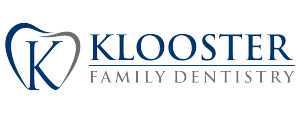Pop quiz: when was the last time you replaced your toothbrush? While we frequently toss out expired food, beauty products, and cleaning solutions, we often forget about our dental hygiene tools. If you’re hoping to maintain the integrity of your oral health, though, it’s important to replace your toothbrush frequently.
When to Change Your Toothbrush
The American Dental Association recommends replacing toothbrushes every three months. It’s around this time that bristles begin to break down and become less effective at cleaning your teeth. Germs are another factor. While we might not like to think about it, germs build up on our toothbrushes over time. That’s why it’s important to always replace your toothbrush after a cold, as you risk reinfecting yourself every time you brush.
Bacteria and fungus can develop in the bristles of your toothbrush, too. After brushing, make sure to thoroughly rinse and dry your toothbrush before storing it in an upright position away from other toothbrushes. When traveling, make an effort to cover the head of your toothbrush to prevent it from getting dirty on the road.
Can’t remember the last time you threw out your toothbrush and replaced it with a new one? You’re likely overdue. Pay close attention to the condition of the bristles. If they’re worn out, frayed, or show signs of discoloration, it’s time to shop for a new toothbrush.
Shopping for Replacements
If you’re in the market for a new toothbrush, consider upgrading to an electric model. The heads are interchangeable, allowing you to quickly swap out old bristles for new ones. Electric toothbrushes also frequently include timer features, ensuring that you’re brushing for a full two minutes each session.
Not sure you want to make the switch to an electric toothbrush? Manual versions are fine, too. Look for options with soft bristles, as hard bristles can damage your enamel. The head size should cover one or two teeth at a time. Be sure to pick up some toothpaste containing fluoride approved by the FDA, too!
Your dentist may have more specific recommendations for your unique oral health needs. If you’re in the market for a new toothbrush, ask your dentist for advice at your next cleaning!

